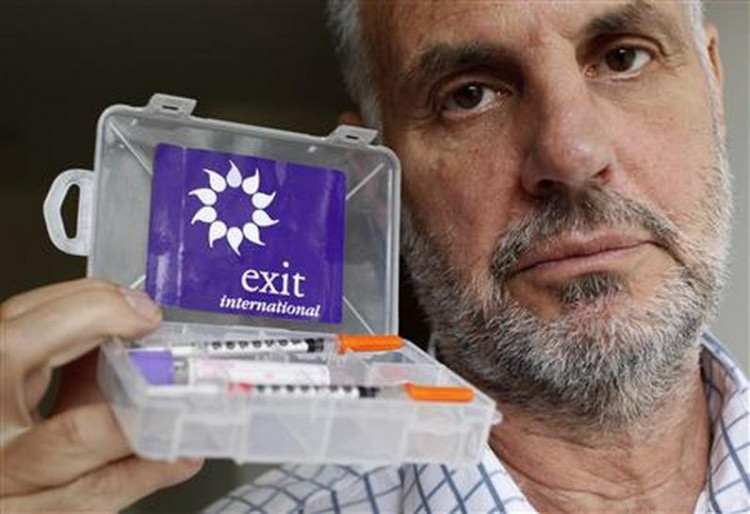Switzerland has now legalized so-called "suicide capsules," which can be used to humanely kill those who want to commit suicide. The 3-D printed pods, called Sarco Suicide Pods, were approved by the country's medical review board on Tuesday.
The pods, which were developed by Dr. Philip Nitschke and his pro-euthanasia organization Exit International, can be operated by the user from the inside. Nitschke said the pods could be sent anywhere, including outdoors, where people who want to commit suicide can die in peace.
Assisted suicide in Switzerland is legal, and the current method involves ingesting a pill filled with chemicals that puts a person into a deep coma before they die. The Sarco Pods, on the other hand, works by quickly reducing oxygen levels within the capsule and replacing them with nitrogen. The oxygen level is reduced from 21% to 1%, painlessly killing its user.
Assisted suicide is currently legal in countries such as Canada, the Netherlands, Belgium, Germany, and Luxembourg.
Once a person enters the pod, they are asked to answer a set of pre-recorded questions to make sure they are decided on ending their life. Once the person dies, the pod can then be used as a coffin. Nitschke claims that the person inside the pod will not feel any pain nor will they suffocate or choke in the low-oxygen environment. He claims that before death, users will only "feel their best."
"We want to remove any kind of psychiatric review from the process and allow the individual to control the method themselves," Nitschke said.
now legal in switzerland, the 'sarco' pod allows the user to administer their own peaceful, nitrogen-induced death in just minutes. https://t.co/YVYsaLigPc pic.twitter.com/vbnH1YibpE — designboom (@designboom) December 8, 2021
Nitschke said they plan to eventually use an artificial intelligence screen system that properly establishes a person's mental state and capacity. He acknowledged that there may still be a lot of skepticism on their plans, particularly with psychiatrists.
"The benefit for the person who uses it is that they don't have to get any permission, they don't need some special doctor to try and get a needle in, and they don't need to get difficult drugs," Nitschke said.
As of now, there are only two capsule prototypes in existence, but Nitschke plans to mass-produce the pods and make them available to the public sometime next year. The pods are means to give those who are terminally ill and those who want to die a "dignified death."
Last year, about 7,600 Canadians sought medical help to end their lives, maintaining a trend of consistent yearly rises since the practice became legal in 2016. The most prevalent illness related to requests for assisted deaths in Canada is cancer. In most cases, patients were already incapable of engaging in any meaningful activities.





